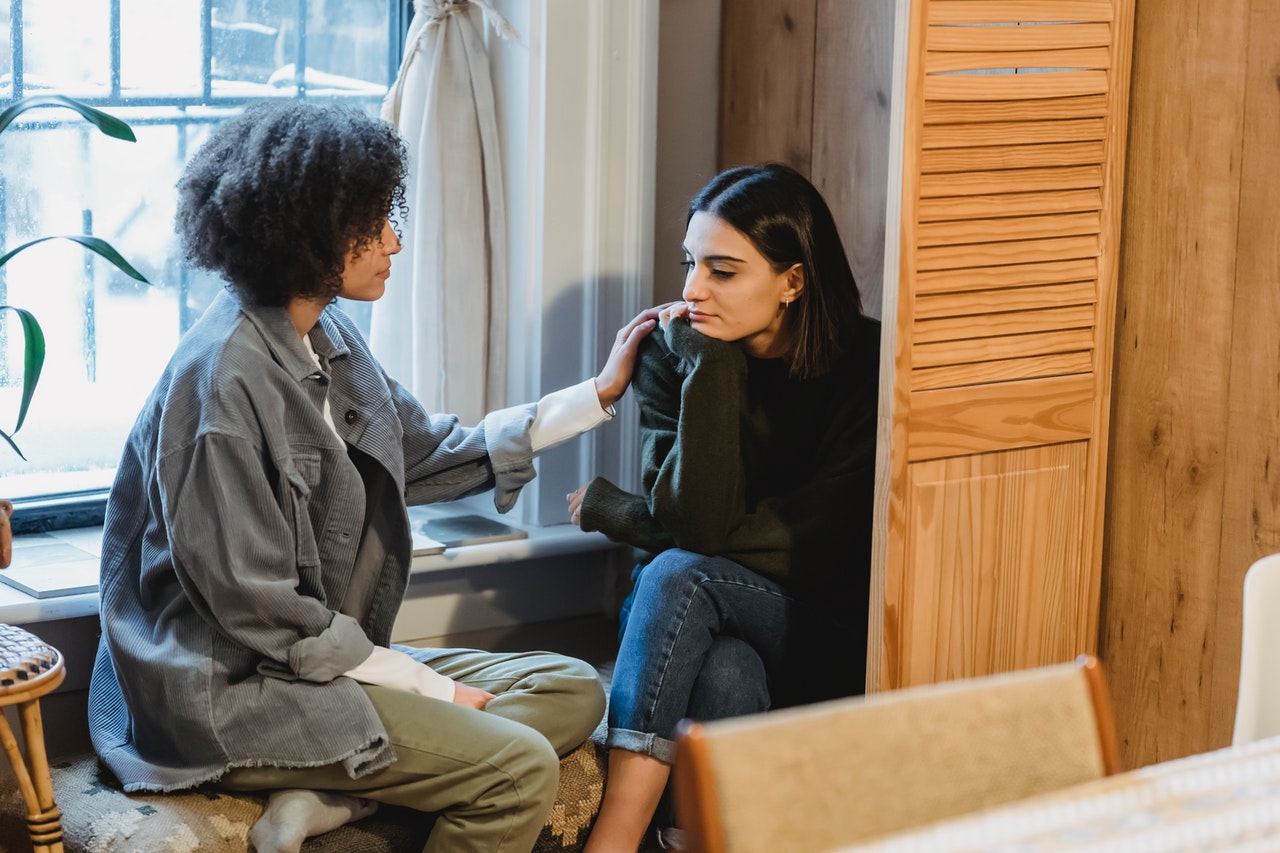A few friends and I were doing some serious front porch sitting a few weeks ago (it’s a Southern thing that involves a swing, some chairs, multiple cups of coffee, and extra good laughs) and one woman said, “I think women are more likely to ask for help than men.” But that’s not true of me. In fact, they’d just given me a lecture on letting them help me out when it was obvious, I did need help.
But I’ve been programmed to do it myself and to always be “just fine, thank you.” I was having intestinal problems a few weeks ago, so I wrote down my ailments in an email to my doctor and we met on video chat. “How are you?” she asked, and I replied, “Just fine, thank you,” and she pointed out I was really not “just fine,” in fact I was rather ill. “I’m programmed to always say ‘just fine’ when someone asks me,” I explained.
It’s just tough for some of us to admit we can’t quite cut it and we do need advice, or help to lift something, or a ride to the doctor. But almost everyone at one time or another does “seek support.” However, are we brought up to believe we shouldn’t need it?
Caroline Adams Miller, professional speaker, coach and best-selling author says women are programmed not to ask for assistance. “Although it’s become a common misconception that there is a ‘confidence gap’ between women and men, the truth is that women are penalized when they seek or display power, so too many women go silent when they want help in amplifying, or getting, what they want. … Although there are many reasons why women don’t seem to ask as aggressively and confidently as men do, it doesn’t mean it is a hardwired behavior that is out of women’s reach. What it does mean, though, is that there needs to be new ways to respond to the women who do ask, which is why an organization like SheEO that has created a community of ‘radical generosity’ of women to female entrepreneurs can make such a difference on a global scale, and why a small ‘moai’ of women who have each other’s backs can create new norms of behavior in your own world.”
Even if we don’t think we have a problem where we need someone else’s opinion or a chance to talk, there are online resources where we can at least look. Take, for example, these resources from the CDC. From considering mental health to admitting life is overwhelming, there is help: “Mental health is an important part of overall health and well-being. Mental health includes our emotional, psychological, and social well-being. It affects how we think, feel, and act. It also helps determine how we handle stress, relate to others, and make healthy choices. Mental health is important at every stage of life, from childhood and adolescence through adulthood.”
Looking at the professional part of a woman’s life, Linda Babcock, Sara Laschever, Michele Gelfand, and Deborah Small in their article “Nice Girls Don’t Ask” explain, “Women are less likely than men to negotiate for themselves for several reasons. First, they often are socialized from an early age not to promote their own interests and to focus instead on the needs of others. The messages girls receive—from parents, teachers, other children, the media, and society in general—can be so powerful that when they grow up, they may not realize that they’ve internalized this behavior, or they may realize it but not understand how it affects their willingness to negotiate. … Second, many companies’ cultures penalize women when they do ask—further discouraging them from doing so. Women who assertively pursue their own ambitions and promote their own interests may be labeled as bitchy or pushy.”
The step to “seeking support” can be a big one, but it doesn’t need to be difficult or complicated.
Personally, there are just days where I’m in a funk. Maybe I know why – maybe it’s because I’ve been dealing with a sick animal or my husband’s back pain is a stressor on both of us. Maybe it’s a full moon. Maybe I was supposed to go somewhere, and the plans suddenly evaporated. Or maybe I wanted to make my favorite appetizers for a party, and I can’t find all the ingredients. Yes, these are minor, but they put a cloud over my day. Talking to a friend can help. Writing down what’s bothering me is a big step because I have to make sense of what I’m feeling to be able to communicate it clearly.
But what if it’s more? What if I’m not feeling well and I just can’t shake it, whether it’s mental or physical? What if it’s more and I really need an advocate? Helplines are available from Womenhelpingwomen.org whose website states: “Expertly trained advocates answer Hotline Calls 24 hours a day, seven days a week, 365 days a year to provide critical crisis intervention to dating violence, domestic violence, sexual assault and stalking survivors as well as to family members and friends. Advocates also provide referrals to appropriate community services. For immediate assistance, call our 24-Hour Hotline at 513.381.5610, Toll-Free 1.877.889.5610 or TTY 513.977.5545. Language Line interpretation services are also available at no charge for non-English speaking callers.”
The fact of the matter is we do have to ask for help from time to time. It might be tying shoelaces when our back is “out” or it may be that we are sick and need a ride to urgent care. That’s what friends and the resources listed here are for. Pat yourself on the back for being strong enough to ask for help when you really do need it. Besides, people who help other people can feel good about doing the favor.
Her Nexx Chapter invites you to join our community and form new relationships on our free virtual platform, where women from all walks of life come together to support and be supported by one another.
The Future of Connection for Women
- National Thesaurus Day: The Book That’s a Major Asset to Anyone Who Writes - January 18, 2025
- Lung Cancer Awareness Month: Know the Subtle Signs of This Silent Killer - December 23, 2024
- National Day of the Horse: How Riding Leads to Connection and Camaraderie - December 20, 2024
Follow us:







